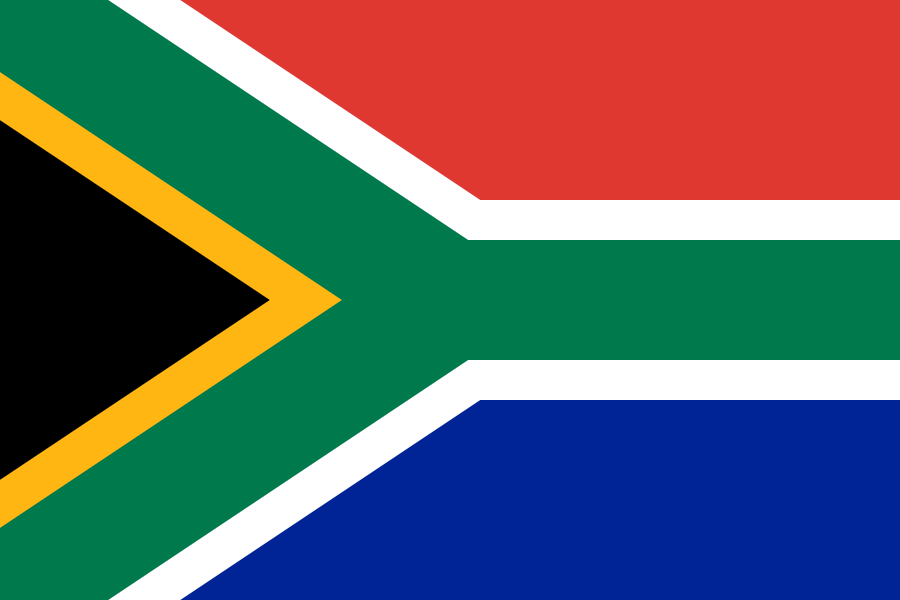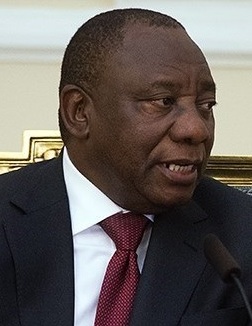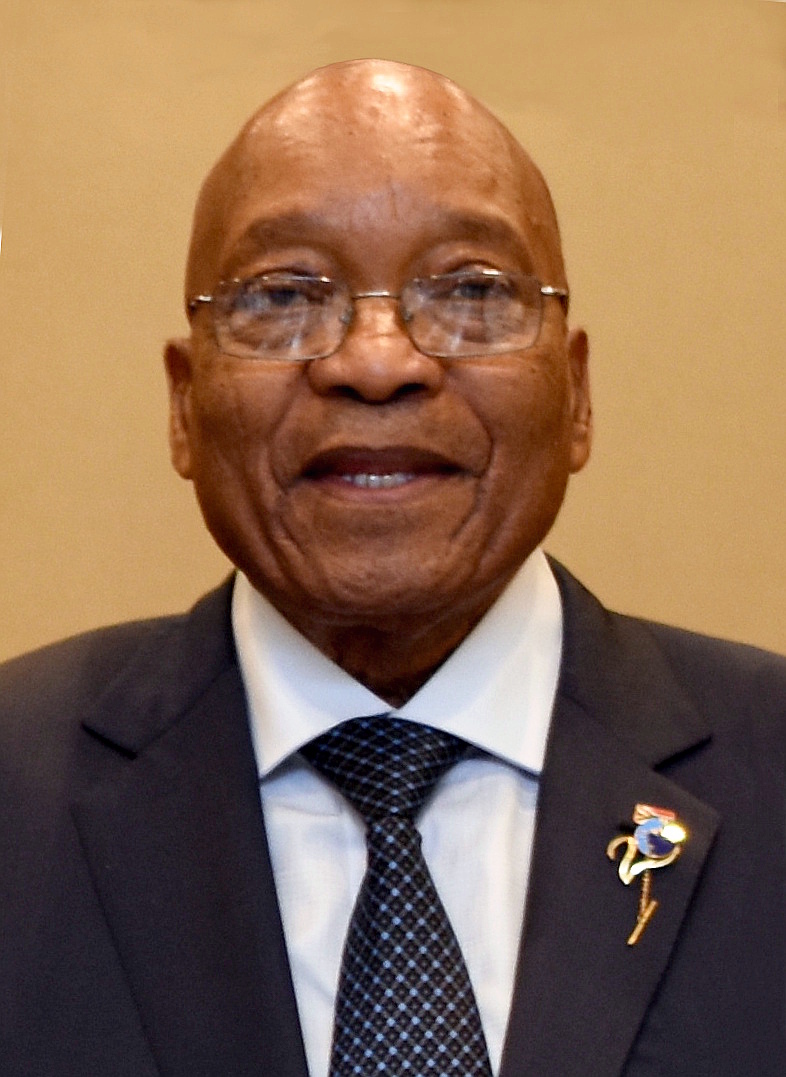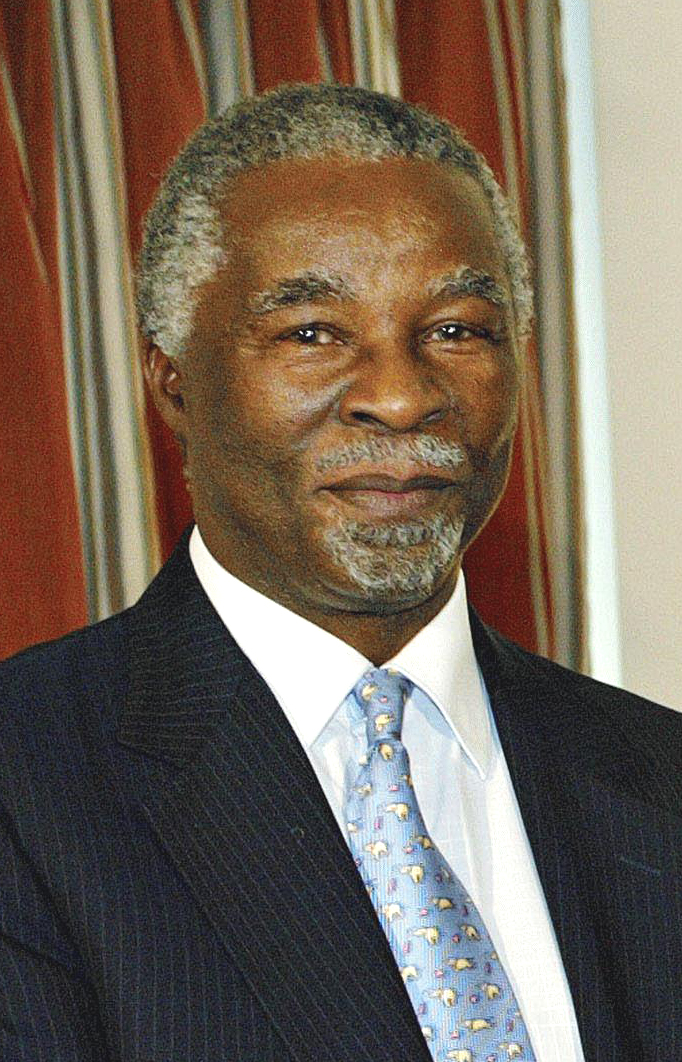What now for South Africa and the ANC?
By Alex Davidson
Jacob Zuma has gone as South Africa’s President but huge problems remain. Zuma’ s departure and Ramaphosa’s election as President is seen by some, and hoped by many, as resolving the problems facing the African National Congress (ANC) and South Africa. However, it will not be as simple as that, as the December 2017 African National Congress conference made abundantly clear.
The ANC has been plagued in recent years by factionalism, scandals involving the President, charges of corruption and ‘state capture’. Meanwhile South Africa continues to endure high unemployment and poverty; and huge inequalities between rich and poor,
ANC has seen its electoral support drop and in the 2016 local elections its vote decreased by 8% to 54%, its lowest point since the end of apartheid in 1994. This was mainly due to traditional supporters not voting. The ANC lost majority control of the metros: Nelson Mandela Bay, which includes Port Elizabeth, a heartland historically of the ANC, Tshwane (Pretoria), the nation’s capital and Johannesburg, the country’s biggest city.
Prior to becoming State President and since, Zuma was plagued by allegations of corruption over defence contracts, Nkandla, his house in Kwa-Zulu Natal, and “state capture”. So, it is easy to see why people saw Zuma as the problem.
However, ANC is riven by factionalism and careerism. In the run-up to the 2016 local elections, 22 ANC members were killed over contests to be selected as councillors. There is a scramble to be in positions of power to award contracts at all levels. Corporate interests are heavily involved in supporting different factions.
The popular base of ANC has increasingly fragmented into narrow groupings, each scrambling over the other for tenders, for positions on electoral lists and for a slice of the cake for their own particular sector.
In addition, there have been tensions and divisions within and between the Tripartite Alliance comprising the ANC, Congress of South African Trade Unions )COSATU) and the South African Communist Party (SACP) for some years.
Zuma’s departure may open up opportunities for the ANC to unify and rebuild but there are certainly no guarantees of that happening.
DECEMBER ANC CONFERENCE
The problems within ANC have been acknowledged for some time as the Political Report to the December 2017 conference, delivered by Zuma as the ANC’s outgoing President, stated: “The movement was afflicted by factionalism, gatekeeping, ill-discipline, membership buying and infighting.” [I]
In the Organisational Report delivered to the Conference by the outgoing Secretary-General, Gwede Mantashe, he said: “Gradually, and over a sustained time period since ushering in the democratic dispensation, our movement has experienced a decline. The decline manifests itself in a multi-faceted manner across different areas such as: quality and quantity of membership; ideological outlook and policy articulation; efficiency and effectiveness of our structures; organisational discipline and the waning of our values and principles among leaders and members alike; cohesiveness and cohesion in the Alliance; electoral performance and ability to govern; and influence in the broader society…However, decline is arrested when there is recognition that something dramatic has to be done, whereupon a new growth trajectory is initiated. Our movement has reached such a moment.” [ii]
This acknowledgement, in the Political and Organisational reports to the conference, that the problems within ANC are very serious, deep-seated and multi-faceted suggests that there are no quick nor easy solutions. Jacob Zuma was a problem but not the only one.
At the conference Cyril Ramaphosa was elected President of the ANC narrowly defeating Nkosazana Dlamini Zuma. He won by 179 votes in a ballot of the almost 5,000 delegates.
The other officials elected to the top six national leadership positions in the ANC were:
- David Mabuza, Deputy President. He is currently Premier of the province of Mpumalanga.
- Ace Magushule, Secretary-General. He is currently Premier of the Free State Province.
- Jesse Duarte, Deputy Secretary-General. This is the post she held previously.
- Gwede Mantashe, National Chairperson. He stood down as Secretary-General at the conference.
- Paul Mashatile, Treasurer-General. He is currently Chairperson of the ANC’s Gauteng Province.
Can the new ANC leadership rebuild unity, end factionalism, stop corruption and renew itself? This is the question facing the new national leadership and all levels of the organisation. If it fails to do so, then it runs the risk of threatening the survival of ANC, not winning a majority at the next election in 2019 and jeopardising the National Democratic Revolution.
“STATE OF CAPTURE”
The publication of the report “State of Capture” on 2 November 2016 by the then South African Public Protector, Thuli Madonsela, concluded that there was evidence of possible corruption at the highest levels of South Africa’s government.
The 355 page report implicated Jacob Zuma and several other government ministers in improper dealings with business, in particular the Gupta family, leading to a position of corporate capture of the state. The report called for the President to establish a judicial commission of Inquiry – to be run by a judge selected by the Chief Justice - not Zuma.
In response, President Zuma, in a question-and-answer session in Parliament, said, “No one, no matter what position they hold, can instruct the president to establish a commission.”
“State Capture” in South Africa refers to those whose who have undue influence on government officials and are able to manipulate them to deliver favours for kickbacks.
The publication of this report, which Zuma tried to stop, was one of a series of events which engulfed the President in a long-running saga of allegations of corruption. The corruption charges, related to defence contracts, brought against Zuma and then dropped prior to him becoming President in 2009. These charges have now been re-instated. There are 783 charges of corruption.
Following the December 2017 ANC Conference President Zuma finally announced the establishment of a judicial commission into state capture following the publication of the Public Protector’s report.
The judicial commission will report in a few months time.
FACTIONALISM WITHIN THE STATE
There are accusations of factionalism within the state. One example being the charges brought against former Finance Minister, Pravin Gordhan and two former colleagues at the South African Revenue Service (SARS) for alleged fraud. Gordhan and two others were due in court on 2 November 2016 but the charges were dropped by the National Director of Public Prosecutions, Shaun Abrahams, on 31 October after a public outcry.
The charges related to Gordhan’s authorising an early retirement package for his deputy when he was head of the country’s revenue service. A few days before the case was due in court some documents emerged showing that Gordhan had been advised at the time that his decision to allow the early retirement package was legal.
The charges against Gordhan followed his affidavit, dated 13 October, in which he asked the High Court to order that he shouldn’t intervene in a decision by the country’s largest banks to shut Gupta family-controlled company accounts. The Gupta family had demanded that he intervene.
Gordhan’s court papers implicated family members and their businesses in 72 suspect transactions totalling R6.8 billion. The Gupta family are friends and business associates of Jacob Zuma.
Gordhan was removed by Zuma from his post as Finance Minister shortly afterwards.
THE GUPTAS
Some of the Gupta family and their close associates have been arrested and charged with money laundering, corruption and theft of state money.
The Gupta family, implicated in the ‘State of Capture’ report, have had some of their assets, estimated at some 1.6 billion rand, frozen by the National Prosecuting Authority’s Asset Forfeiture Unit (AFU).
The Gupta brothers, Ajay, Atul and Rajesh and their families moved to South Africa in 1993 from India and established a company, Sahara computers. The family now have wide business interests in air travel, energy, mining, technology and the media.
Duduzile, Zuma’s daughter, was appointed as a director of Sahara Computers in 2008, six months after Zuma was elected ANC President although she has since resigned. One of Zuma’s wives, Bongi Nguma-Zuma, worked for the Guptas and one of his sons, Dudzane, was a director in some of the Gupta family-owned companies but stepped down in April 2016 because of what he described as a “sustained political attack”.
There have been allegations that the Gupta family, through their links with Zuma and others, had secured key state contracts and influenced government appointments. The Deputy Finance Minister, Mcebisi Jonas, said that a member of the Gupta family had offered to promote him to the Minister’s post in 2015 and there are other similar claims.
One of the allegations against the Guptas concerns the Vrede Estina dairy project in the Free State province, in which it is claimed that only 1% of the 220.2 million rand transferred to the project by the Free State government was spent on actual farming. It is alleged that most of the money was siphoned off to Gupta owned companies.
The Free State agriculture minister at the time was Mosebenzi Zwane. He is now Minster of Mineral Resources in the national government and is further implicated in allegations relating to mineral contracts involving the Guptas. These contracts involved state owned enterprise, ESKOM, the national energy company. It is alleged that funds were diverted from ESKOM to Trillian, a Gupta-owned company.
Privately owned McKinsey, the world’s largest management consulting firm, has denied doing anything illegal but said in October 2017 that it was embarrassed by mistakes it made while working with ESKOM and regretted working on a contract at ESKOM alongside Trillian, a company controlled by the Gupta family.
“South Africa’s Corporate Registry has accused McKinsey, KPMG South Africa and the German software maker, SAP, of criminal breaches of company law as a scandal over the group’s ties to the controversial Gupta family reignited.” [iii]
All of these companies apologised last year after their work with Gupta-linked companies was exposed in a series of leaked emails.
Barclays Africa and Standard Bank stopped working with McKinsey and the South African arm of Coca-Cola was the first major non-bank business to stop working with McKinsey. South Africa’s Parliament is investigating whether McKinsey knowingly let funds from ESKOM be diverted to Trillian as a way of securing the contract.
The Guptas used the PR company, Bell Pottinger, to try and divert attention from the growing allegations of ‘corporate state capture’ being levelled against them. (See article Bell Potinger’s PR campaign to inflame racial hatred by Alex Davidson. The Socialist Correspondent Issue 30)
The Premier of the Free State, Ace Magushule, is the newly elected Secretary-General of ANC, and there are claims that he is implicated in the Estina dairy project.
CHARGES AGAINST ZUMA
The corruption charges against Jacob Zuma relate to a major arms deal. A cabinet sub-committee on arms procurement from 1996-1999 approved the purchase of R30billion worth of military hardware. The arms deal eventually cost double that largely owing to the unstable rand. This arms deal is at the root of the corruption charges against Zuma.
The first casualty of the deal was Tony Yengeni, ANC Parliamentary Chief Whip, charged by the Directorate of Special Operations (DSO), known as “the Scorpions” and subsequently found guilty of having accepted a big discount on a luxury 4x4 Mercedes Benz. Then in 2001 Schabir Shaik was arrested after a Scorpions search-and-seize operation on his offices and home.
Accusations of corruption against Jacob Zuma, then Deputy President, emerged during the trial of Schabir Shaik, who was found guilty of corruption and fraud related to the arms deal and sentenced to fifteen years imprisonment on 2 June 2005. Neither Shaik nor Zuma denied that payments had been made by Shaik to Zuma. Both insisted that the transactions were loans.
In December 2005 Zuma was charged with rape but was acquitted in May 2006 in a very high- profile trial, which stirred much emotion throughout the country.
Corruption charges were to be brought against Zuma by the National Prosecuting Authority. President Thabo Mbeki then relieved Zuma from his post as Deputy State President. Zuma remained Deputy President of the ANC.
The charges against Zuma were dropped on a technicality prior to him becoming State President. The corruption charges were recently reinstated against Jacob Zuma.
DIVISIONS
There have been tensions and divisions within and between the Triple Alliance partners (ANC, COSATU and the South African Communist Party) for some time.
In 1996 with the government’s adoption of its GEAR[iv] plan serious differences began to emerge. COSATU and the SACP were unhappy with the dropping of the Reconstruction and Development Programme (RDP) and its replacement by GEAR. This policy was adopted with only limited consultation with the Alliance partners. The economic policy of the government was seen as neo-liberal, favouring business rather than labour.
Increasingly the SACP and COSATU became critical of the ANC government. Notwithstanding this, Thabo Mbeki was elected President of ANC following the retiral of Nelson Mandela and he was elected President of the country in 1999 and re-elected in 2004.
Whilst the economy continued to grow and many advances were made in terms of access to clean water, electrification, sanitation, housing, education and other areas of social policy, the gap between rich and poor grew wider and unemployment remained very high at some 25% officially but nearer 40% in reality. The SACP drew the following conclusion: “Thanks to our post-1994 state interventions, big capital has been the major beneficiary of 13 years of ‘stabilisation’ and economic growth. The subordinate ‘caring’ state dimension of GEAR consisted in reducing the RDP (Reconstruction and Development Programme) into a set of technical ‘delivery’ targets funded out of tax derived from this capitalist growth – delivery but without transformation.”[v]
This discontent with the government’s economic policies was exacerbated by Mbeki’s lack of consultation with ANC’s partners, COSATU and the SACP. “For years we have had to endure from some quarters of the ANC consistent displays of contempt and disdain for the elected leaderships of the SACP and COSATU.” [vi]
Jacob Zuma was seen by many as a victim and became the reservoir of discontent within the ANC alliance.
The anti-Mbeki forces united around Jacob Zuma and he defeated Mbeki in the election for President of the ANC at the Polokwane Conference in 2007. Following Polokwane, ANC recalled Mbeki as State President and he was replaced by Kgaleme Motlanthe as interim president until the 2009 election when Jacob Zuma was elected President of the country.
Mbeki’s removal was brought about by an alliance of disparate forces within the ANC including COSATU, the SACP and the ANC Youth League, led at the time by Julius Malema, who was later expelled by ANC, and now leads the Economic Freedom Fighters.
Shortly after the election of Jacob Zuma as President of the ANC, a breakaway from the ANC launched itself as a new party, “Congress of the People” (COPE), in December 2008, with Mosiuoa ‘Terror’ Lekota as leader and Mbhazima Shilowa, former Gauteng Premier, as his deputy and some other prominent ANC members joined.[vii]
OPPORTUNISM
Other factors leading to divisions are the issues of careerism, opportunism and corruption, largely a consequence of ANC holding power.
From 1994 and the first democratic election many leaders of ANC, COSATU and the SACP had entered government, locally and nationally, as politicians or officials. This weakened the structures of the Tripartite Alliance. With the introduction of Black Economic Empowerment (BEE) many others went into business. At the same time as these departures from the structures of the movement, some people saw that the best and quickest way forward for them personally was to join the ANC.
The first of the ANC leaders to openly talk about these negative tendencies was former president Nelson Mandela. In his political report to the 50th National Conference in 1997, he stated that, "Later in this report, we will discuss the intrusion of this self-same media within our ranks, during the last three years, to encourage our own self-destruction, with the active involvement of some who are present here as bona-fide delegates to the conference of a movement to which they owe no loyalty... In reality, during the last three years, we have found it difficult to deal with such careerists in a decisive manner. We, ourselves, have therefore allowed the space to emerge for these opportunists to pursue their counter-revolutionary goals, to the detriment of our movement and struggle. During this period, we have also been faced with various instances of corruption involving our own members, including those who occupy positions of authority by virtue of the victory of the democratic revolution... Clearly we have to take all necessary measures to purge ourselves of such members and organise ourselves in a way that will make it difficult for corrupt elements to gain entry into our movement".[viii]
At the same conference Acting Secretary General, Cheryl Carolus, further reflected on the matter: "The competition within the organisation for positions in government has added a new dimension to the contestation of ANC leadership positions. Election to an ANC position is viewed by some as a stepping stone to positions of power and material reward within government. While such views might be inevitable, we need to ensure that personal ambition is sufficiently tempered by the needs of the organisation and the demands of the National Democratic Revolution. The organisation needs to develop mechanisms which will ensure that the contestation of leadership positions does not divide the organisation and does not detract from the key programme of the movement".[ix]
These problems of careerism and corruption continued after Mandela had left office.
The ANC January 8th Statement in 2008 stated: "…while the ANC's organisational strengths have included an ability to broaden its appeal beyond its traditional support base and adapt mass work under new conditions, it has acquired a number of 'accumulated weaknesses'. As conference indicated, these weaknesses include:
- An inability to effectively deal with new tendencies arising from being a ruling party, such as social distance, patronage, careerism, corruption and abuse of power;
- Ineffective management of the interface between the movement and the state;
- A flawed approach to membership recruitment;
- A decline in ideological debate among cadres; and
- A lack of institutional resources to give practical effect to the movement's leadership role.
"In the run-up to conference, the process of leadership contestation seriously tested the ANC's unity and cohesion, core values, character, and tried and tested organisational practices."[x]
The ANC government introduced the Black Economic Empowerment (BEE). This led to the creation of a black middle strata of some 6 million, up from 1.7 million in 1994. One consequence of this has been the re-configuration of the multi-class composition of the ANC with a growing hegemony of a new black bourgeois stratum over its structures.
At the same time there have been significant redistributive efforts since 1994. Some 16 million South Africans (almost 1/3 of the population) benefit from social grants; over 3.5 million RDP (Reconstruction and Development Programme) houses have been built; millions of water and electricity connections have been installed and more than 400,000 solar water heater panels have been installed on the roofs of houses of the poor.
However, despite these massive redistributive efforts, the skewed structure of the economy remains untransformed. The post-apartheid economy largely remains in private hands and it is an economy with an excessive reliance on mineral exports.
The state, with its limited resources and rising popular expectations, is increasingly overwhelmed as competing interests and factions scramble competitively over scarce resources.
[i] Political Report to ANC Conference, December 2017.
[ii] Organisational Report to ANC Conference, December 2017.
[iii] Financial Times, 17 January 2018.
[iv] GEAR: Growth, Employment and Redistribution Plan
[v] Umsebenzi, journal of the SACP, “A Shift to Where?”, May 2007
[vi] An SACP open Letter to the ANC Membership, African Communist, November 2007.
[vii] Including Rev Allan Boesak, Nosimo Balindlela (former Eastern Cape Premier), Phillip Dexter (former SACP) and Barney Pityana (Vice Chancellor of the University of South Africa). Dexter has since re-joined ANC and Balindlela has joined the Democratic Alliance.
[viii] Political Report, 50th National Conference, 1997
[ix] Organisational Report, 50th National Conference, December 1997
[x] ANC Statement, 8 January 2008


Cyril Ramaphosa

Jacob Zuma

Thabo Mbeki






